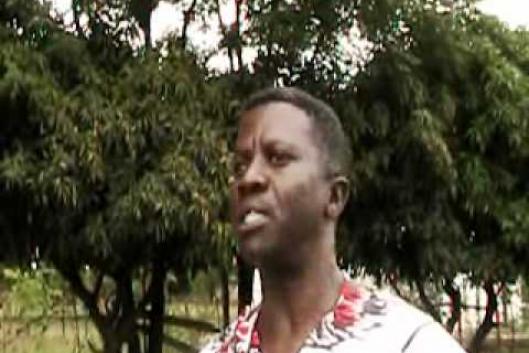In the reports about the effects of industrial tree plantations of eucalyptus, pine or oil palm on peoples' lives, negative impacts such as conflicts over land tenure, depletion of water resources, lack of work opportunities and destruction of local economies are most frequently mentioned. Specific impacts on fundamental aspects of people's culture are usually mentioned less or not at all, although the consequences can be tremendous when the culture of a people is strongly linked to their identity, self-esteem, well-being and ultimately to their survival.
This is the case with traditional healing in South Africa. Because of the expansion of industrial tree plantations, traditional healers in Bushbuckridge in northern South Africa suffer from loss of and restricted access to areas with indigenous tree species used for traditional medicine, which is fundamental for people's health and well-being. In Bushbuckridge, the traditional healers' organization has its own centre in the middle of the community, intensively frequented by the community members, showing the importance of their practices for the community. Due to the lack of access to certain indigenous tree species, the traditional healing culture is under threat. The healers were never consulted, as is true for most of the affected communities as a whole, as to whether or not they wanted the industrial tree plantations (see the testimony of a traditional healer at yHZ2t4CMkZY&list=UUt5J0iX">
FPruH3sYHcw4bz_g&index=8&feature=plcp).
Actually, in South Africa and in many other countries in the South, corporations that promote industrial monoculture tree plantations not only destroy local cultures, they try to introduce a new concept of culture: the culture of consumption, carefully “wrapped” in a discourse that uses nice words like “development”, “progress” and “job creation”. However, Stora Enso's Latin American director Otávio Pontes, for example, in a 2006 video about the impacts of Stora Enso activities in Brazil called It Is Sweden That Is Too Small, makes a very clear defense of the “culture of consumption” when he states, “Consumption of paper is a way of measuring the level of education of a population. Therefore the higher the consumption of paper, the higher the level of education of the people” (see www.wrm.org.uy/videos).
This culture of consumption that, according to this paper industry executive, makes people ever more educated when they consume more paper, actually has little to do with education and/or literacy, even if education is considered in a strict sense, e.g. the consumption of books for the important activity of reading, studying, gathering information and knowledge. The majority of paper consumption is for wrapping and disposable paper (see Mountains of Paper, Mounting Injustice atQVDQc-r_Wb8 ">or www.wrm.org.uy ). Moreover, consumption is concentrated in urban centres far away from the affected communities, and strongly linked to the industrial profit- and consumption-oriented society that has been leading the world to the present scenario of increasing climate change, hunger and death that is affecting the majority of the world population – precisely the non-consuming part – as well as nature itself.
The culture that traditional healers promote and are part of is based neither on consumption nor on false propaganda of the type that Stora Enso and other corporations use for their own and their shareholders' benefit. The traditional healers have strong roots in the territory and base their healing on respect for and knowledge of nature and they aim to promote community well-being and solidarity. It is neither about ever increasing consumption, nor about profits. While their practices are being threatened, their presence has become even more important, considering the problems faced by communities fenced in by large-scale plantations when then try to oppose these plantations and conserve their culture.
This motivated Geasphere, a local NGO in Mpumalanga, northern South Africa, to work actively together with and support traditional healers and their organizations in the struggle against the expansion of industrial tree plantations. Traditional healers participate, for instance, in the Water Caucus, a broad non-governmental coalition of NGOs and community organizations concerned with the conservation of water resources for people's needs. Their concern over industrial tree plantations and their expansion is obvious, since plantations in South Africa, promoted mainly by a few large corporations, have been known for decades as a proven cause of depletion of water resources.
The involvement of traditional healers in South Africa where communities are resisting and struggling against industrial tree plantations has proven crucial, as is also being shown in many other places. It is one more fundamental element that can create solidarity and build a movement among affected communities. It shows once again that people need to be respected, and that culture and education have nothing to do with ever increasing and excessive paper consumption.
By Winfridus Overbeek, WRM, information obtained during a field trip in South Africa and Swaziland carried out in December 2011, with the local organization Geasphere.
